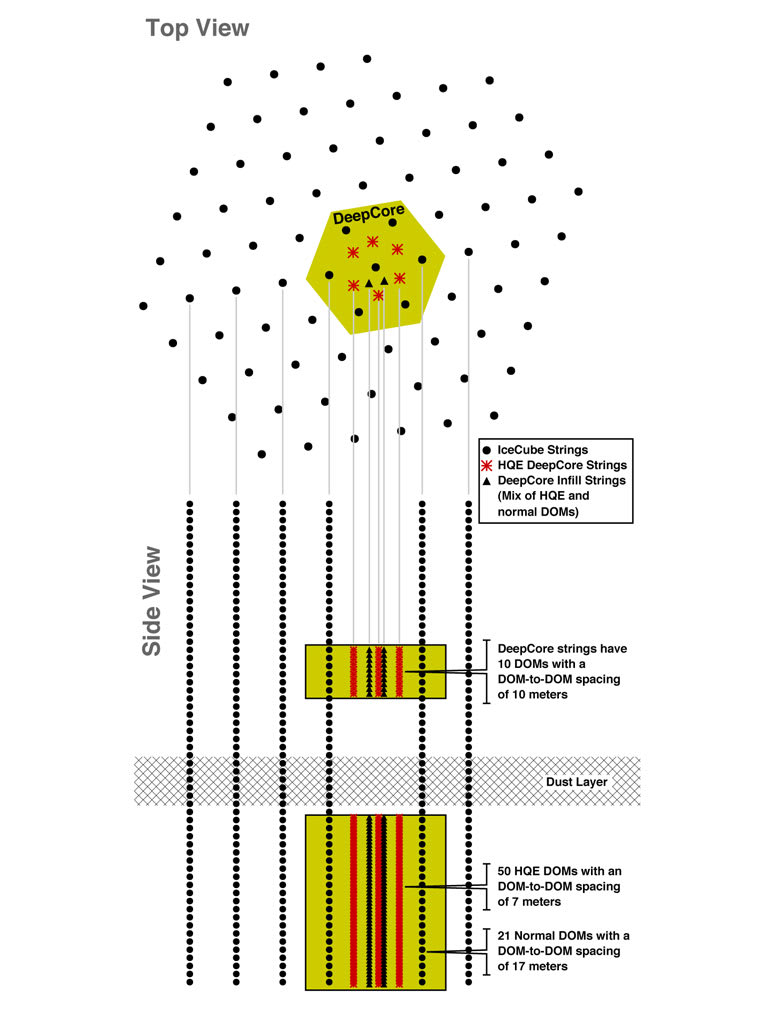IceCube DeepCore “sub-detector” sees high-energy neutrino oscillations
During a poster presentation at the International Conference on Neutrino Physics in Kyoto, Japan, IceCube post-doc Andreas Gross from the Technical University of Munich, Germany revealed something of interest to the particle physics community: the highest observed energy level of neutrino oscillations.
Gross used data from the DeepCore array within the IceCube Neutrino Observatory. The IceCube DeepCore extension consists of six densely deployed strings of modules and seven normally deployed strings. DeepCore’s two defining characteristics are the close proximity of the strings and that a number of modules are positioned below 2000m in the ice; at 2100-2450m, modules are below a major dust layer and the ice is extremely clear.
DeepCore modules also boast a new photomultiplier tube with approximately 35% more quantum efficiency. All these factors enable the DeepCore “sub-detector” to track neutrinos with energies as low as 10 gigaelectronvolts (GeV).
High and low energy classifications are relative, though, because what IceCube sees on the low-energy side of things is pushing the upper limits for most experiments. IceCube researchers typically study neutrinos from astrophysical origins that clock in above the 1,000 GeV level. While 10 GeV is low for IceCube, Nagoya University physicist Yoshitaka Itow tells Nature that the Japanese neutrino experiment Super-Kamiokande’s “energy resolution above 10 GeV is very poor and that above 50 GeV, the experiment cannot resolve the energy of the oscillating neutrinos at all.”
The high-energy neutrino oscillations that Gross used in his analysis were between 10 and 100 GeV. All events consisted of muon neutrinos oscillating in to tau neutrinos. The results contribute to our understanding of neutrino types and confirm that oscillations take place at higher energies than previously found.
A large contingent of IceCubers have deployed to the meeting in Japan, also known as “Neutrino 2012.” On Friday, June 8, IceCube Principal Investigator and UW-Madison Professor Francis Halzen will chair a session on Experimental Neutrino Astronomy, with several members of the internal IceCube Collaboration presenting.
For more information about IceCube DeepCore, we recommend The Design and Performance of IceCube DeepCore by the IceCube Collaboration (source).
